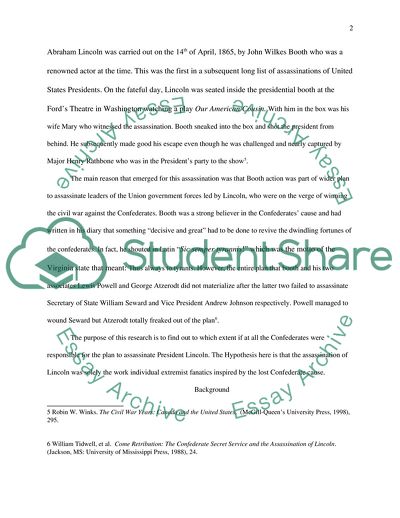Cite this document
(Confederate Government Complicity in the Assassination of Abraham Research Proposal - 1, n.d.)
Confederate Government Complicity in the Assassination of Abraham Research Proposal - 1. Retrieved from https://studentshare.org/politics/1749838-confederate-government-complicity-in-the-assassination-of-abraham-lincoln
Confederate Government Complicity in the Assassination of Abraham Research Proposal - 1. Retrieved from https://studentshare.org/politics/1749838-confederate-government-complicity-in-the-assassination-of-abraham-lincoln
(Confederate Government Complicity in the Assassination of Abraham Research Proposal - 1)
Confederate Government Complicity in the Assassination of Abraham Research Proposal - 1. https://studentshare.org/politics/1749838-confederate-government-complicity-in-the-assassination-of-abraham-lincoln.
Confederate Government Complicity in the Assassination of Abraham Research Proposal - 1. https://studentshare.org/politics/1749838-confederate-government-complicity-in-the-assassination-of-abraham-lincoln.
“Confederate Government Complicity in the Assassination of Abraham Research Proposal - 1”. https://studentshare.org/politics/1749838-confederate-government-complicity-in-the-assassination-of-abraham-lincoln.


